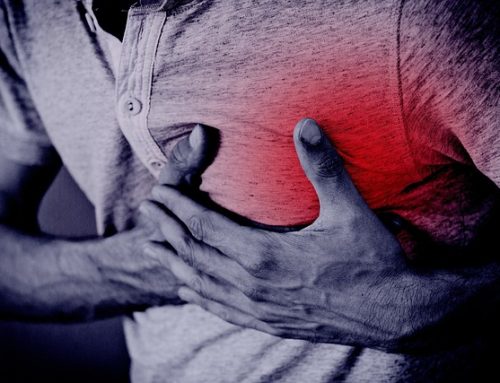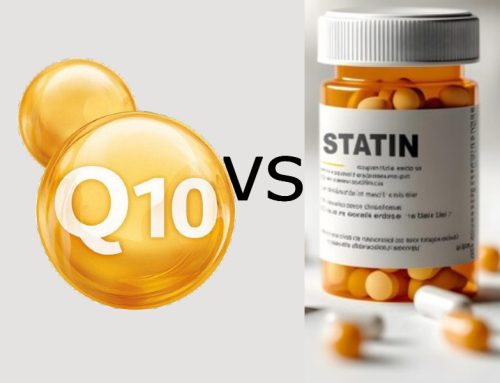A 2025 sub-study analysis of the data from the KiSel-10 Study has revealed sex differences in responses to the combined supplementation. Basically, the analysis showed that the measured 10-year cardiovascular survival rate was higher in females. The combined supplementation reduced the risk of cardiovascular mortality to a greater extent in females than males. Moreover, the improved survival rate kicked in later in females than in males [Alehagen 2025].

Professor Urban Alehagen is a distinguished Swedish cardiologist. He is known for his pioneering research on the effects of CoQ10 and selenium supplementation in cardiovascular health, particularly among the elderly. He has been and is the chief researcher and leading author of the KiSel-10 study. Now, in a sub-analysis, the KiSel-10 Study researchers show that female study participants benefited more from the combined supplementation of 200 mg of Coenzyme Q10 and 200 micrograms of selenium daily for four years than males did.
In the period 2003 – 2010, Prof. Urban Alehagen and his colleagues enrolled 443 elderly Swedish citizens living at home in the Kinda community. The elderly Swedish study participants took part in a randomized controlled trial. At baseline, they had deficient selenium status (mean: 67.1 mcg/L) and borderline Coenzyme Q10 status (mean: 0.82 mg/L) [Alehagen 2020]. The researchers knew that low selenium status and age-related decline of CoQ10 are associated with an increased risk of cardiovascular disease. Therefore, they assigned the study participants to a 48-month-long intervention with 200 mg/day CoQ10 and 200 mcg/day selenium or matching placebos. They determined the response to the combined supplementation at four and ten years [Alehagen 2025].
Sex Differences in KiSel-10 Study Health Outcomes
The analysis of the data shows that the combined supplementation with CoQ10 and selenium over a four-year period had a stronger beneficial effect on cardiovascular mortality in females than in males. Prof. Alehagen and the KiSel-10 researchers suspect that the sex differences may be related to the following factors noted at the start of the study. However, other factors may be involved as well [Alehagen 2025]:
- There was a higher prevalence of diagnosed ischemic heart disease and more signs of heart failure in males.
- There were noticeably higher rates of systemic inflammation and oxidative stress in males than in females.
- There was a higher rate of smoking in male participants.
With respect to ischemic heart disease, the researchers noted the following differences:
- The combined supplementation improved cardiovascular survival in both males and females with ischemic heart disease.
- In study participants with no discernible ischemic heart disease, the combined supplementation appeared to be more efficient than in study participants with ischemic heart disease.
- However, the better effect in study participants without ischemic heart disease was first apparent after four years of follow-up, and it was stronger in females.
Importance of CoQ10 and Selenium Formulations
A 2019 double-blind cross-over study has shown considerable variation in the uptake and bioavailability of differing formulations of CoQ10 supplements. Two points merit special attention [Lopez-Lluch 2019; Mantle & Dybring 2020].
- A CoQ10 ubiquinone preparation that had been subjected to a patented thermal crystal dispersion process yielded significantly higher bioavailability than CoQ10 ubiquinone preparations not subjected to the crystal dispersion process. The bioavailability of the unpatented ubiquinone preparation was reduced by approximately 75% [Mantle & Dybring 2020].
- The bioavailability of the preparation with the Coenzyme Q10 in ubiquinol form was approximately twice the bioavailability of the CoQ10 ubiquinone preparation not given the crystal dispersion treatment. However, the bioavailability of the ubiquinol preparation was only 52% of the bioavailability for the CoQ10 ubiquinone preparation that had been subjected to thermal crystal dispersion [Mantle & Dybring 2020].

Prof. Guillermo Lopez-Lluch is the chairperson of the International Coenzyme Q10 Association. He was the leading researcher on a 2019 landmark cross-over study of CoQ10 absorption and bioavailability.
Accordingly, it can be seen that the thermal crystal dispersion process and the composition of the carrier oils and excipients are important to the absorption and bioavailability of the Coenzyme Q10. The formulation of the CoQ10 preparation is more important to absorption and bioavailability than is the form of the Coenzyme Q10, whether ubiquinol or ubiquinone [Lopez-Lluch 2019].
Conclusions: Sex Differences in the KiSel-10 Study
The combined supplementation resulted in significant cardiovascular and health benefits.
The 10-year cardiovascular survival rate was higher in females. The combined supplementation reduced the risk of cardiovascular mortality to a greater extent in females than males. Moreover, the improved survival rate kicked in later in females than in males.
The probability of improvement in cardiovascular survival seems to be greater when the supplementation with CoQ10 and selenium begins at an earlier stage of the development of cardiovascular disease.
Early detection and early correction of a diagnosed CoQ10 and selenium deficiency may be an efficient and cost-effective health-supporting measure on a population-wide basis.
CoQ10 preparations are safe, effective, and affordable. Nonetheless, it is important to select a CoQ10 preparation with documented absorption and bioavailability.
Sources
Alehagen U, Johansson P, Bjørnstedt M, Ros A, et al. Cardiovascular mortality and N-terminal-proBNP reduced after combined selenium and coenzyme Q10 supplementation. Int J Cardiol. 2013;167(5):1860-1866.
Alehagen U, Aaseth J, Alexander J, Johansson P. Supplemental selenium and coenzyme Q10 reduce glycation along with cardiovascular mortality in an elderly population with low selenium status. Journal of Trace Elements in Medicine and Biology. 2020;61:126541.
Alehagen U, Aaseth JO, Schomburg L, Opstad TB, Larsson A, Alexander J. Selenium and Coenzyme Q10 supplementation and sex differences in cardiovascular mortality results from a prospective randomized double-blind placebo-controlled trial in elderly people low in selenium. Antioxidants. 2025; 14(6):685.
López-Lluch G, Del Pozo-Cruz J, Sánchez-Cuesta A, Cortés-Rodríguez AB, Navas P. Bioavailability of coenzyme Q10 supplements depends on carrier lipids and solubilization. Nutrition. 2019 Jan;57:133-140.
Mantle D, Dybring A. Bioavailability of Coenzyme Q10: An overview of the absorption process and subsequent metabolism. Antioxidants (Basel). 2020 May 5;9(5):386.
The information presented in this review article is not intended as medical advice. It should not be used as such.








Leave A Comment